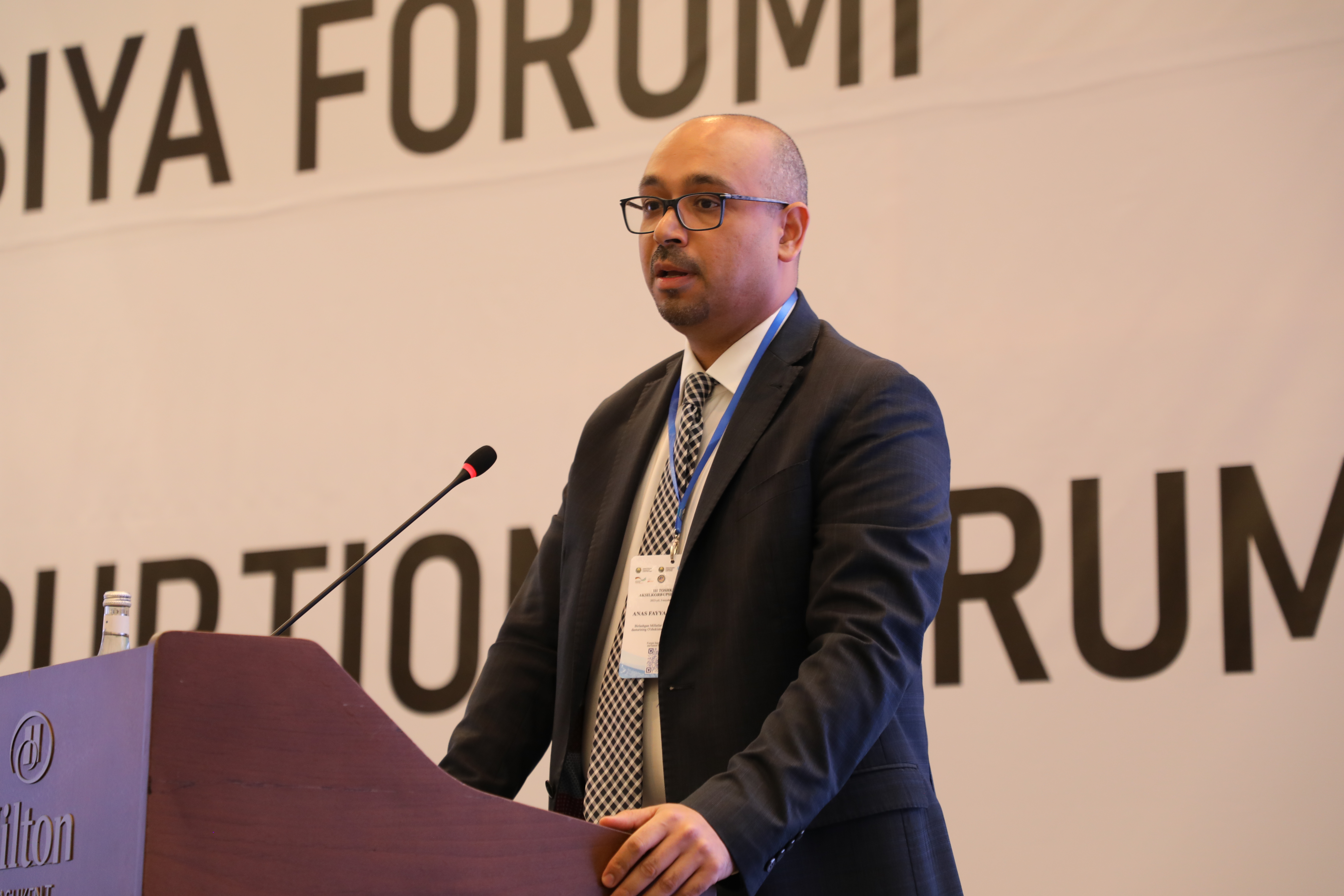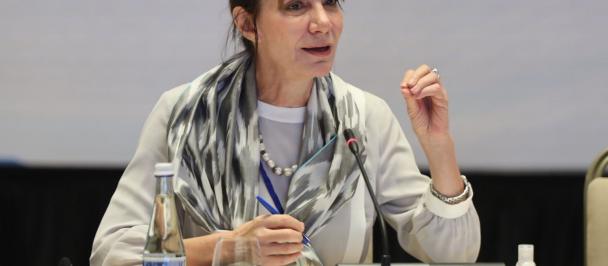Statement by Anas Fayyad Qarman, UNDP Resident Representative a.i. in Uzbekistan at III Tashkent Anti-Corruption Forum
November 3, 2023

Assalomu alaykum aziz dostlar, xonimlar va janoblar!
(Good morning dear friends, ladies and gentlemen!)
I would like to express my gratitude to our national partners for their continuous support and ownership in our joint anti-corruption initiatives, as well as for the opportunity to support this important event.
Let me also thank the participants and speakers of this forum. Many of you are playing a significant role in advancing anti-corruption reforms in Uzbekistan.
Today’s forum represents an important venue to further our mutual achievements on promotingintegrity, transparency and accountability in this country.
Our event is taking place at a critical moment for Uzbekistan’s development. Having launched constitutional and administrative reforms, the country is on the path to build a strong “Human – Society – State” nexus based on the principle of human honor and dignity.
Critical for the success of this ambitious development agenda are good governance, rule of law and the effective fight against corruption.
Uzbekistan has achieved commendable results in advancing the integrity agenda over the past several years.
These include building an institutional framework on preventing corruption through creating an Anti-Corruption Agency and compliance units in all state bodies, enacting important legislation on anti-corruption, administrative procedures, public procurement, and government openness.
As a result of these efforts, Uzbekistan is slowly but steadily improving its stance in key international rankings, including Transparency International’s Corruption Perception Index, World Justice Project’s Rule of Law Index, and World Bank’s Good Governance Indicators.
Unfortunately, the existing institutions, laws and policies on anticorruption have not yet merged into a well-functioning, effective and robust integrity ecosystem and there is a lot of work ahead.
Corruption is still endemic at all levels and sectors of the government, and the efforts to address it are unfortunately fragmented and do not focus on its root causes.
Insufficient efforts are undertaken to curb corruption at regional and local levels, where it is felt most prominently and directly by people.
The most critical challenge to address is underdevelopment of the demand side for anti-corruption, meaning lack of collective action and joint anti-corruption advocacy efforts within broader society.
Gender aspects of corruption, poor legal knowledge and self-censorship of the media, stereotypes of tolerance for corruption, which are confused with traditions, further aggravate the situation and require targeted interventions.
To address these challenges, UNDP jointly with national partners has been working on strengthening anti-corruption mechanisms at both supply and demand sides.
As a result, we have
Introduced an anti-corruption compliance system in 11 public bodies and organizations and implemented a ranking of state agencies in their anti-corruption efforts.
Launched a number of anti-corruption information and awareness raising products, for instance, one of them “ABC on Anti-Corruption”, guidance with illustrations on lobbying, nepotism, integrity, etc.
Supported 11 non-governmental organizations with small grants to implement innovative anti-corruption projects on the ground.
Currently, we are supporting the government in mainstreaming the concept of whistleblowing into the national anti-corruption agenda through developing the relevant legislation and building a digital solution to report corruption by citizens based on the experience of Korea.
In the context of the ongoing institutional and governance reforms, it seems critical to strengthen collaboration of both international and national actors on anti-corruption with an aim to make these interventions systemic, sustainable and targeted.
We in particular see the following priorities of further anti-corruption policies in Uzbekistan:
improving policy, legal and institutional framework to consolidate the anti-corruption and integrity ecosystems;
expanding anticorruption dynamics and integrity culture to sub-national and local levels;
empowerment of citizens, civil society, businesses and investigative journalists in the fight against corruption.
In this context, we hope that today’s forum will help to:
critically review the country’s progress in fighting corruption,
exchange best practices and knowledge on anti-corruption,
and generate new partnerships, innovative ideas and solutions to building sustainable and corruption-free Uzbekistan.
I wish all of us a productive and enjoyable dialogue.
Thank you very much! Rahmat!

 Locations
Locations